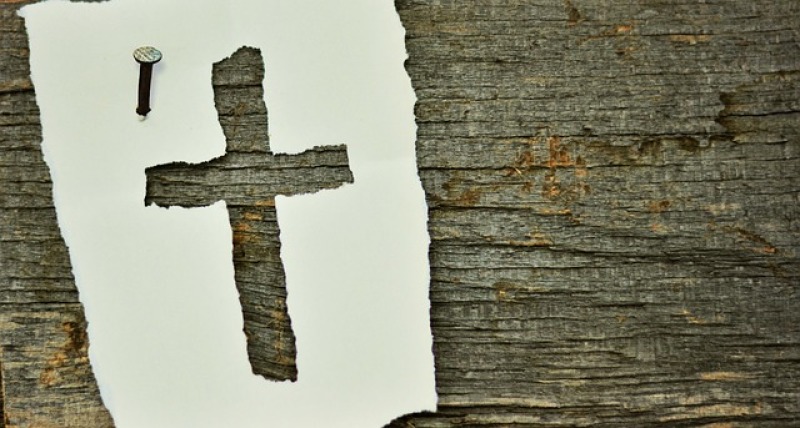
As Holy week approaches, people in the faith need to understand the story and norms behind this celebration. The Holy Week will begin April 2 this year, and multiple celebrations, sacrifices, and offerings will be held leading to Easter Sunday, which falls on April 9.
Holy Week is the most sacred week of the year in the Christian liturgical calendar. According to the Archdiocese of Saint Paul and Minneapolis, the holiday starts on Palm Sunday and lasts until Easter Sunday. This week is a time to reflect on and celebrate the Paschal Mystery, which includes Jesus' suffering, death, resurrection, and ultimate triumph over sin and death. The Holy Week observance is a time to remember Jesus's sacrifice for humanity and the ultimate victory of his resurrection, glorifying his father.
When is Good Friday in 2023?
Good Friday, which falls on April 7 this year, is a significant holy day for Christians, commemorating the crucifixion of Jesus. It is also known as Holy Friday, Great Friday, or Black Friday. According to a story shared in USA Today, Good Friday marks the end of the 40-day Lenten season, a period of prayer, fasting, and self-discipline for Christians that culminates in Holy Week.
Important dates during the Lenten season and Holy Week include Ash Wednesday (February 22, 2023), Palm Sunday (April 2, 2023), Holy Thursday (April 6, 2023), Good Friday (April 7, 2023), Easter Sunday (April 9, 2023), and Easter Monday (April 10, 2023). While the name "Good Friday" may seem paradoxical given the day's focus on death and suffering, it is thought to have originated from the older term "God's Friday," or because the tragedy of the day ultimately led to the goodness of Easter, when Christians celebrate Jesus' resurrection from the dead.
Understanding Good Friday
Good Friday is an important day for Christians, as it commemorates the crucifixion and death of Jesus Christ at Calvary Hill. According to Christianity, it is also known by several names, such as Holy Friday, Great Friday, Great and Holy Friday, and Black Friday. Christians believe that Jesus' death and resurrection are the most pivotal events in human history.
The apostle Paul considered it "of first importance" that Jesus died for our sins, was buried and was raised on the third day, according to the Scriptures. On Good Friday, Christians remember the day when Jesus willingly died by crucifixion as the ultimate sacrifice for our sins. Easter follows it, celebrating Jesus' resurrection and his victory over sin and death, pointing towards the future resurrection for all those who believe in him.
Why is it Called 'Good' Despite The Suffering and Death of Jesus Christ
The term "Good" Friday may have originated from the idea that Jesus' death and resurrection led to the victory over sin and death and the celebration of Easter, the most important Christian celebration. According to the Atlanta Journal-Constitution, some believe that the word "good" may have come from "God's Friday" or "God be with you," similar to how the word "goodbye" comes from "God be with ye."
However, not all Christians refer to this day as "Good Friday." For instance, the Greek Church calls it "the Holy and Great Friday," while it's referred to as "Sorrowful Friday" in German. The day is also commemorated with a prolonged fast and was referred to as "Long Friday" by the Anglo-Saxons.
According to an article in Slate, the most widely accepted theory about the origin of the name "Good Friday," supported by the Oxford English Dictionary and language experts, is that it comes from an old meaning of the word "good" as "holy."
Experts such as Jesse Sheidlower, the president of the American Dialect Society, and Anatoly Liberman agree that this explanation makes sense, especially when considering other names for Good Friday, such as "Sacred Friday" in Romance languages and "Passion Friday" in Russian. Additionally, the OED mentions that there was once a "Good Wednesday," which is now commonly known as Holy Wednesday.
Also Read: Observing Ash Wednesday: A Guide to Lent for Catholics and Christians
What do We do On Good Fridays
Catholics observe Ash Wednesday and Good Friday as required and mandatory days of fasting and abstinence. According to the United States Conference of Catholic Bishops, Catholics are required to abstain from meat on all Fridays during Lent. For members of the Latin Catholic Church, fasting is compulsory from age 18 to 59.
During fasting, one can eat one full meal and two smaller meals that do not add up to a full meal. Members of the Eastern Catholic Churches follow the specific law of their sui iuris Church. If possible, the fast on Good Friday should continue until the Easter Vigil as the "paschal fast" to honor the suffering and death of Jesus and prepare themselves for his resurrection. More details on fasting and abstinence can be found below.
Related Article: Exploring the Different Types of Prayer: Petition, Intercession, Thanksgiving, and Worship



















